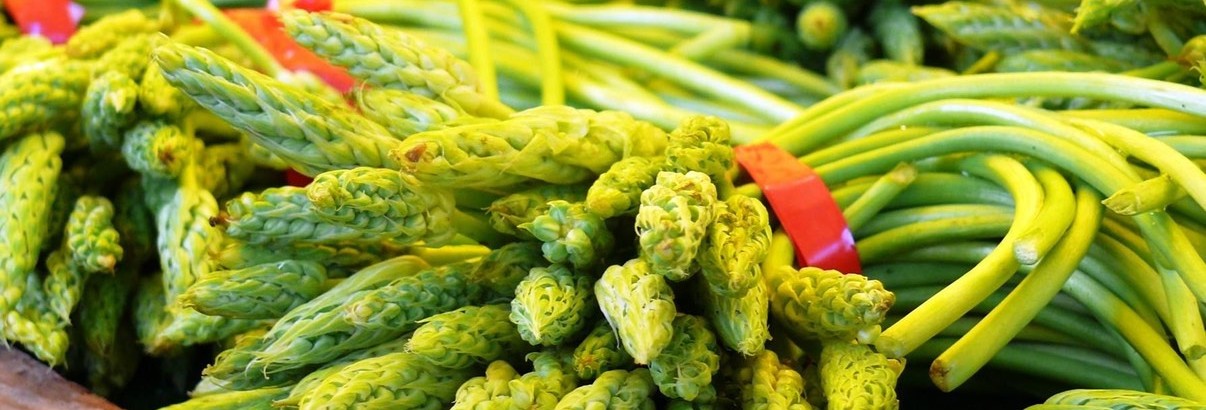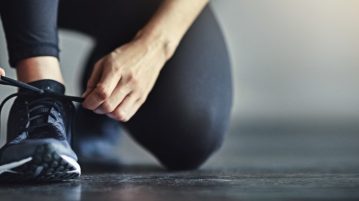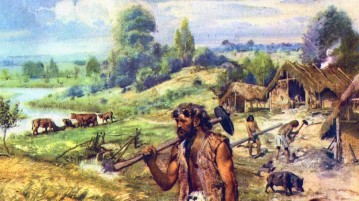Cutting on meat after years of eating it could be scary. After all, this is not often that we change drastically our eating habits. With all the information out there, such as nutrient deficiencies, it may not be easy to know for yourself what to do and how to do it. How to become vegetarian without making the transition too harsh?
In this article, we will introduce you to this new way of eating, by telling you everything you need to know, about what that means to transition to this diet, and what to do to ensure that all your needs are met.
If you have any question, feel free to leave a comment in the end of the article. We also provide you a guide, in PDF format, that contains everything you need to know before becoming vegetarian.
Becoming Vegetarian
You’re be about to take your leap of faith: you’re now ready to become a vegetarian. No more meat, rather, plant-based alternatives. Your had this idea for a while now and you feel now is the right time.
But… you still have some unsolved questions, about your health, or the difficulty you might encounter by switching your diet. Before moving on, you need to know that there are many kinds of vegetarians, and that would help you to have a better understanding as well as not feeling that there’s only one way to go if you decide to cut on meat.
| Vegans | Vegans avoid everything that comes from the animal kingdom; they are also political activists. Being vegan is more a lifestyle and a strong commitment towards preventing animal suffering. Vegans avoid wearing cloths made of leather, and often defend animal rights. |
| Lacto vegetarians | Consume dairies (such as cheese), yet refuse to eat meat as well as eggs. |
| Ovo-lacto vegetarians | Consume eggs as well as dairies, yet don’t eat animal flesh (that includes fishes and crustaceans). |
| Semi-vegetarians, or « flexitarians » | Do not consume meat, yet indulge on some fish occasionally. |
As you can see, the word “vegetarian” actually means at least four different ways to eat, the main difference being about the type of foods that are being eaten. But no need to overcomplicate this, these categories are more a way to show you that there are subtleties, even if it doesn’t make that much of a difference. It is more a personal choice more than anything else, and I do think that one isn’t better than another, rather some are more convenient.
Before becoming vegetarian, we invite you to ask yourself some questions, and take some time to reflect on what is that you’re trying to accomplish through this change:
- Are you doing it for ethical reasons? You neither support animal suffering nor want to caution it?
- Are you doing it for your health? You read that meat was responsible for cancers? The waters fish swim in are polluted and contain toxic metals? You feel lethargic, and you think meat is the culprit?
- Are you doing it for saving money? Meats costs you too much, and you’re looking for alternatives?
Taking the time to asking yourself such questions and answering them will help you to have a better understanding of your choice, in regards to your diet.
Feasibility
When one changes his or her diet, there are systematically repercussions on the body. Especially when you introduce new food like soya, that can alter hormones production. Of course, there is nothing dangerous about this way of eating; I’m myself convinced that in many regions of the world, the diet of our ancestors was mostly plant-based (the Neolithic Period started around 9000 BC), but without some knowledge, you’re likely to become deficient.
And despite what we can read there and that, there is nothing “natural” about being vegetarian, as we do not have any proof regarding the so-called better health of our ancestors. It appears to me that this is an important point worth mentioning, because I don’t want you to rush through this and simply becoming vegetarian on the belief that they had a better health than we do.
To this day, I think that if one chooses to become vegetarian, that should be a choice made upon the notion of feasibility. For many of us, hopefully, it is somewhat easy to remove any animal-based food from our diet, because we do have tasty alternatives, as well as dietary supplements. But if you live in places where there are no supplements, you would benefit from eating eggs for instance. For many people driven by ethics, I often ask “At what cost?”. For example, what would be the benefit for you in becoming vegan, if you systematically refuse to eat out, and spend hours reading the labels?
Here again, this notion of feasibility applies.
Health Consequences
I talked earlier about deficiencies, and this is something worth understanding and integrating. Animals permit the production to various vitamins that do not exist in the plants, some processes require bacterias to be present, as some amino acids only exist in trace amount in plants. It means that you’d have to eat a really big amount of certain plants to be able to profit any of their nutritive qualities. This is the case of vitamin B12, leucine, as well as some fatty acids.
I’m not trying to discourage you from becoming vegetarian, I’m myself one for almost 4 years now, and I’m fine.
Bad Causality
 There’s another phenomenon I’ve encountered, that I’d call “bad causality”. Some people, after they became vegetarian are more tired, more sluggish, have less energy, suffer from some digestive issues, and sometime end up a bit depressed. And once this happens, they point fingers at their vegetarian diet, before ditching it.
There’s another phenomenon I’ve encountered, that I’d call “bad causality”. Some people, after they became vegetarian are more tired, more sluggish, have less energy, suffer from some digestive issues, and sometime end up a bit depressed. And once this happens, they point fingers at their vegetarian diet, before ditching it.
As explained earlier, by becoming vegetarian, you may end up becoming more tired, or with less energy, but this doesn’t mean that you need meat, it can mean that becoming vegetarian brought up some deficiencies you were already suffering from. It can also mean that at the same time, you were suffering from a stressful situation in your life: these all possible factors than can be linked to how you feel.
By stepping back and reflecting, you will avoid to simply give up, and get back to your previous diet, while concluding that vegetarianism isn’t for you.
The Magic Pill
Our readers know that there are two things we don’t believe in: fad diets and magic pills. Becoming vegetarian won’t necessarily give you a better health. Maybe you’ll consume more fibers, so you’ll be more satiated, which mean eating less, which also means losing weight. But this doesn’t mean that by becoming vegetarian you will lose 10 pounds overnight, as it doesn’t mean you will be less tired or less lethargic all of a sudden. I think what becoming vegetarian means, first and foremost, is a questioning of your diet, your health, and your life. And there’s nothing magic here, just a better awareness.
You could also end up more tired, with a worsened health, and this is why to reap all the benefits of vegetarianism, you need a solid strategy.
Strategy
With that said, let’s dive into what this new diet means; we’ll talk about the stuff you need to know, and how to prevent any deficiency.
Blood Test
Before completely removing meat from your diet, I suggest that you do some blood testing. This will help you to spot any deficiency before even becoming a vegetarian.
Incomplete Proteins
Even if most plants contain amino acids, they lack some others; there are few exceptions. We advise you to add the following food to your staple:
- Quinoa
- Buckwheat
- Chia seeds
- Soya
- Spirulina
- Pea protein
Although most plants contain incomplete amino acids, by varying your consumption, you should be able to meet all your amino acids requirements. You can, for example, eat a quinoa salad, and have peas for dinner. You can add some tofu or buckwheat throughout the week, etc.
Most plants lack the amino acid leucine. Leucine is an amino responsible for protein synthesis (what your muscles and tissues are made of). In order to hit your daily requirements, you can for example take a rice-based protein1.
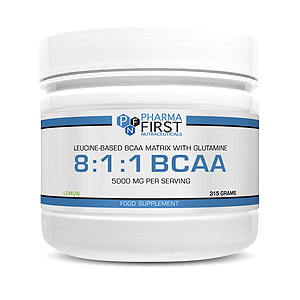 If you are an active person, we advise you to supplement with some protein powder, in order to maximize your amino acids intake. You can for example buy BCAA, with a ratio of 8:1:1 (This ratio is indicated on the labels). You also need to know that animal-based proteins have a better digestibility than plant-based proteins2. To better understand this point, you need to know that the digestibility of a protein is directly related to your amino acid requirements. Proteins that come from animals contains more of the amino acids we require, compared to proteins that come from plants; this is why animal-based proteins have a better digestibility. For you information, eggs are digested up to 97%, soya is digested up to 86%2.
If you are an active person, we advise you to supplement with some protein powder, in order to maximize your amino acids intake. You can for example buy BCAA, with a ratio of 8:1:1 (This ratio is indicated on the labels). You also need to know that animal-based proteins have a better digestibility than plant-based proteins2. To better understand this point, you need to know that the digestibility of a protein is directly related to your amino acid requirements. Proteins that come from animals contains more of the amino acids we require, compared to proteins that come from plants; this is why animal-based proteins have a better digestibility. For you information, eggs are digested up to 97%, soya is digested up to 86%2.
Soy: What’s the Fuss?
When you get more into vegetarianism, there are high chances that you will hear about soy. Soy is supposedly “bad for your hormones”. But what does that mean exactly?
The fuss concerns phytoestrogens soy contains. Phytoestrogens are plant-derived xenoestrogens, not generated within the endocrine system, but consumed by eating phytoestrogenic plants. Phytoestrogens have the ability to cause estrogenic and antiestrogenic effects by sitting in and blocking receptor sites against estrogen4. Phytoestrogens can have a negative impact for men, on their testosterone levels. But latest data shows that under 50 grams per day, there’s nothing to be worried about. If you are a male, you would simply avoid over-consuming soy.
Vitamins and Minerals Needs
Finally, let’s talk about your vitamins and minerals needs. While they are often neglected, both vitamins and minerals are really important to maintain a good health. This is a general concern, more than something specifically targeted at vegetarians; more and more of the soils where our foods grows are getting depleted from minerals, as more and more chemicals degrade their natural qualities; we end up with foods that contain less vitamins and minerals. While dietary supplements don’t replace a balanced diet, they can be effective to overcome any deficiency you could have, especially in big cities, full of pollution, and far from where the food has grown. In this section, we’ll talk in details about about the vitamins and minerals you ought to be attentive to.
Vitamin B12
Vitamin B12, or cobalamin, is mostly found in animals, and despite what you could read online, there almost no B12 in plants. The one that is present is pseudo-B12, that is biologically inactive. And when some B12 is found, it is only due to a contamination by micro-organisms.
Vitamin D3
Many people are deficient in D3, yet don’t know about it. Vitamin D3 mostly comes from animals. You can find it in dairies, eggs, beef, as well as certain fishes, such as herring, or salmon.
Omega-3
Omega-3 are fatty acids you could be deficient in. You can find alpha-linolenic acid (ALA) in plants, or in some oils, such as linseed oil, or nut oils, although, you need an enzymatic conversion from alpha-linolenic acid to eicosapentaenoic acid (EPA) and docosahexaenoic acid (DHA)5, moreover, the bioavailability of ALA is inferior to the bioavailability of EPA and DHA. Hopefully, it is easy nowadays to find algae-based EPA and DHA dietary supplements.
Iron
In plants, you will only find iron in its non-heme form. Heme form is available in hemoglobin and myoglobin, mainly found in muscle tissues. Women are more likely to be iron-deficient than men, even more if they are vegan or vegetarian, because of the blood loss during menstruation. Vitamin C seems to increase non-heme iron absorption5.
Zinc
Zinc is a mineral, and as it is the case for many minerals, body fluids such as sweating, excrete them. Athletes, or people living in hot areas can be zinc deficient. You won’t find much zinc in plants, mostly in sesame seeds, pumpkin seeds, and trace amounts in cashews. Beware, phytic acid, bran and seeds contain, inhibits zinc absorption5.
Magnesium
Magnesium is also evacuated via body fluids, and this is why many athletes are magnesium deficient. Food that are rich in zinc are also often rich in magnesium; this is the case for sesame seeds, pumpkin seeds, as well as spinach.
Calcium
Calcium isn’t much present in plants, tofu is the food that contains the most calcium, even if a high-protein diet is often sufficient to cover calcium needs. Spinach and quinoa are food that are rich in calcium; vegans and vegetarians should consume more of these foods to cover their needs.
Athlete Needs
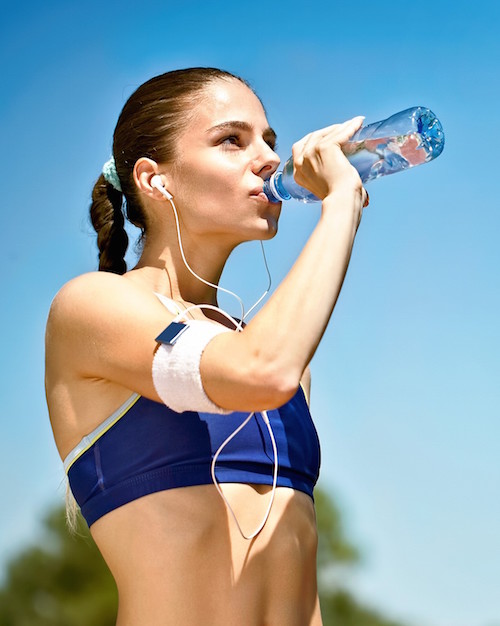
For athletes, there’s a greater needs, because minerals are lost quicker, and in greater amounts. For athletes, we advise the following:
- Increase your protein consumption (pea protein powder and rice protein powder).
- A multivitamin formula, as well as food fortified in D3.
- Consume fatty acids (EPA/DHA) from algae.
Dietary Supplements: Rule Violation
While this article presented some possible plant-based alternatives, we nevertheless invite you to consider “violate” your personal rule, and supplement yourself with fish oil, that would help you to cover your EPA and DHA needs, both being more bioavailable in fish oil.
Requirements Table
The following table shows the requirements for the aforementioned vitamins and minerals:
| Linseed oil | 5 to 10 grams a day, (roughly one tablespoon, cold-pressed). You can for example add it to your salads |
| Vitamin B12 | 500 to 1000 µg/ day |
| Vitamin D3 | 2000-2500 IU/ day |
| Iron | 8 mg/day for men. 18 mg/ day for women and seniors |
| Zinc | 11 mg/day for men, 8mg/ day for women |
| Magnesium | 250-300 mg/day |
| Calcium | 500-100 mg/ day |
When buying multivitamins, make sure that they contain iron, as it is not often the case. You can for example buy this formula, that will cover all your need.
Conclusion
To sum up, becoming vegetarian or vegan requires a bit of planning. Some deficiencies are likely to show up, especially if you’re an active person. While you may read that some plants contain B12, this is an incomplete claim: without contamination by micro-organisms, the only form you’ll find in plants is pseudo-vitamin B12, which is biologically inactive.
While vegetarianism means many different ways of eating, I do think that the devil is in the details. I’m myself an ovo-lacto vegetarian, and not only I do think it’s the easiest form of vegetarianism, I also think it’s the best way to prevent deficiencies; by consuming dairies and eggs most of the vitamins and minerals requirements are met.
Before becoming a vegetarian, ask yourself the following question: why do you need to overcomplicate your life for ethical reasons?
While cutting on meat is a great step towards a better environment and an harmonious life, it doesn’t mean that your health has to pay the price for that.
References
- Joy JM, Lowery RP, Wilson JM, Purpura M, De Souza EO, Wilson SM, Kalman DS, Dudeck JE, Jager R. The effects of 8 weeks of whey or rice protein supplementation on body composition and exercise performance. Nutr J. 2013 Jun 20;12:86.
- Lyle McDonald. What Are Good Sources of Protein? – Digestibility. Bodyrecomposition.coma
- Aragon AA. Fish oil: Just the facts. 2007.
- Barr SI, Rideout CA. Nutritional considerations for vegetarian athletes. Nutrition. 2004 Jul-Aug;20(7-8):696- 703.
- JR Hunt et al. Zinc absorption, mineral balance, and blood lipids in women consuming controlled lactoovovegetarian and omnivorous diets for 8 wk. Am J Clin Nutr. 1998 Mar;67(3):421-430.
Download the PDF
Download our guide, that contains everything you need to know before becoming vegetarian. You can print it (on recycled, vegan paper), share it, and get back to it in case you have any question!
Download the Vegetarian Guide (PDF. 2.5 MB)

